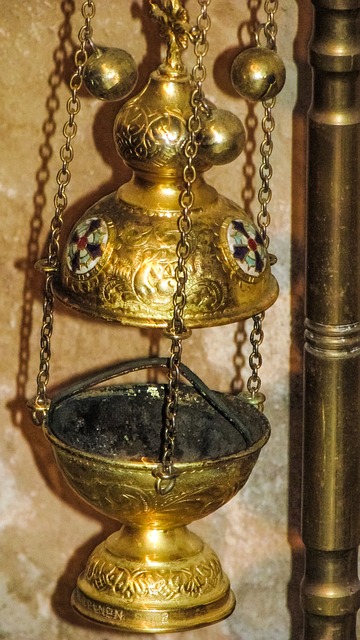
8 “But as for the cowardly, the faithless, the detestable, as for murderers, the sexually immoral, sorcerers, idolaters, and all liars, their portion will be in the lake that burns with fire and sulfur, which is the second death.” – Revelation 21:8
Why Worry?
Amazing the ideas that come to our minds when we think of Hell. When I was a freshman in High School there was this “joke” on the wall in the art room that was placed there by one of the students. Unfortunately, it very well summarizes the philosophy of too many. It was simply entitled, “Why Worry”.
Why Worry
There are only two things to worry about:
Either you are well or you are sick.
If you are well, then there is nothing to worry about.
But if you are sick, then there are only two things to worry about:
Either you will get well or you will die.
If you get well, there is nothing to worry about.
But if you die, then there are only two things to worry about:
Either you will go to heaven or hell.
If you go to heaven, there is nothing to worry about.
But if you go to hell,
You’ll be so darn busy shaking hands with friends
You won’t have time to worry!
So why worry?
The world may consider this to be a clever joke, but it is no laughing matter. We have no right to make light of something the Bible takes so seriously. Sadly, as evidenced by this twisted philosophy, many people mock what the Bible records about Hell. People like Ted Turner have gone on record as saying they cannot wait to die and go to Hell. To people like him Hell will be one big party. Unfortunately their idea of Hell must come from Satan, the father of lies, because the Bible never paints such a portrait of Hell.
Roll Call
When John has his vision of Heaven as recorded in the Book of Revelation, he records the above words about the lake of fire and the second death spoken by Him who is seated on the throne. Argument could be made that either this is God the Father or Jesus, regardless, the speaker has more authority on the subject of Hell than anyone else. Certainly, what He has to say doesn’t line up with the philosophy of the author of “Why Worry” or the likes of Ted Turner.
According to Revelation, Hell will be populated with the likes of the cowardly, the faithless, the detestable, murderers, sexually immoral, sorcerers, idolaters, and all liars. While I don’t believe this list was by any means meant to be exhaustive, it does give us a “flavor” of what the population of Hell will be like. Certainly not people I would longingly anticipate shaking hands with and spending eternity with. Nor would I want to party with these people if I was the partying type. But I am not Ted Turner.
Jesus had strong words for the cowardly. Those that denied Him before men He would in turn deny before the Father (Matt. 10:33). The fate of the faithless was no better as Jesus warned in John 8:24. Who wants to die in their sins? Similarly, we could quote Bible verses about the detestable, murderers, sexually immoral, etc. But the simple question is this: if these people will forever be banned from the presence of God why would we think we would want to spend eternity with them?
Heaven’s Table
11 I tell you, many will come from east and west and recline at table with Abraham, Isaac, and Jacob in the kingdom of heaven – Matt. 8:11
When Jesus wanted to correct the Sadducees regarding the resurrection, which they did not believe in, He quoted Exodus chapter three verse six in which God tells Moses that He is the God of Abraham, Isaac and Jacob. Since God is not the God of the dead but of the living, these Patriarchs, although physically deceased, must still be alive. What a hope for the troubled Jews to know that someday they could fellowship at Heaven’s table with such “giants”.
But how about you? We can cringe at the “worlds” mockery of Hell and the afterlife, but how real are the promises of Heaven to you? Set aside the streets of gold and the beauty of Heaven for a moment. Are you looking forward to the companionship that we as believers will have there?
In addition to Abraham, Isaac and Jacob we will be reclining with Moses, Daniel and Paul. If that doesn’t get you excited how about Spurgeon, Moody and Taylor? Okay, so we have never met these people, so let’s get personal. How about your grandparents? Maybe your father or mother? Perhaps you have a sibling or a child waiting at Heaven’s table for you to join them. We have all buried loved ones that we want to see again.
I am not interested in Hell’s roll call. I want nothing to do with sorcerers, idolaters, liars or any others that Christ deems unworthy to enter His kingdom. Give me the “society” of Heaven where we will forever enjoy the purest fellowship of the Redeemed, and most importantly, the fellowship of the Redeemer.
With Christ
23 I am hard pressed between the two. My desire is to depart and be with Christ, for that is far better. – Philippians 1:23
The great Apostle Paul, as gifted as he was, and as vital as he was to the church, had no unhealthy attachments to the world. As much as Paul found joy and fulfillment in serving Christ here on earth, it could not compare with being in His presence in Heaven. Hence his verdict that to be with Christ is far better.
I am excited that Abraham, Isaac and Jacob will be reclining at Heaven’s table. It intrigues me to think of meeting the giants of the faith that we have read and heard about for years. Imagine meeting people like Rahab, Ruth and Mary Magdalene. The testimonies of the power and grace of God would never get old. Just think of listening to the woman at the well as recorded in John chapter four or the woman caught in adultery as recorded in John chapter eight. What a thrill it would be to hear them talk about their encounters with Jesus. Do you take for granted your encounter with Him?
Forgive me for repeating myself, but I cringe when I hear people say that Heaven has become a better place once their loved ones have passed from this life and entered Heaven’s fold. Heaven is Heaven because it is the perfect home of the Trinity. The fact that our loved ones are now reclining at Heaven’s table doesn’t make it any better, it just makes this world’s hold on us weaker. Which is how it should be.
Don’t Worry
Perhaps, like Paul, you are feeling hard pressed. The pressures you feel may not be the same ones that Paul was experiencing but they are crushing you nonetheless. Hold onto the Truth, don’t give into the world’s philosophies. God loves you with a perfect love. He is all powerful and He is sovereign. His promises are eternal.
Nothing will ever separate you from His love, and He will work out all things for your good. In the final analysis there is really only one thing to worry about: dying in your sins and having your portion in the lake of fire which is the second death.
But, if you have been redeemed by the blood of Christ, the abundant life is yours to experience and Heaven is your home. There are many saints reclining there awaiting your arrival. But most importantly, Jesus is there waiting for you with open arms. His scars are His testimony that because of His love, ultimately His children have nothing to worry about.
Enjoy your time at the table. It will never end.
27 But nothing unclean will ever enter it, nor anyone who does what is detestable or false, but only those who are written in the Lamb’s book of life. – Revelation 21:27







